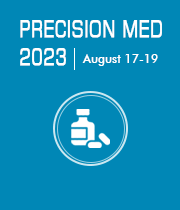Cancer Genetics and Comparative Genomics
Cancer is a somatic cell genetic disorder. Cancer genetics aims to identify people and families who are more likely to acquire cancer as a result of inherited gene mutations.
The whole set of genetic information required for the development and maintenance of life is referred to as a genome. Every organism's genetic information is stored in chromosomes, which are DNA molecules. Simply described, the genome is the sum of all the genes in an organism. Comparative genomics is a rapidly growing field of biology in which scientists compare the genomes of various organisms. Despite the fact that early gene sequencing research was exceedingly expensive and time-consuming, genome sequencing technology has gotten less expensive, labour-intensive, and more powerful. Oncology and cancer research are among the disciplines where comparative genomics is now being used. The interdisciplinary collaboration of researchers in comparative genomics and oncology (also known as comparative cancer genomics or comparative oncology) allows for the examination of inherited cancer risk and tumour development across species, with the ultimate goal of improving cancer care for both human and animal patients.
- Basic and Translational Studies
- Genetics, Genomics and RNA-Based Biomarker Development
- Whole Genome Studies
- Novel Biological and Clinical Interpretation
- Tumorigenesis
- Somatic genomic alterations
- Sporadic tumors
- Hereditary Cancer Syndromes

Bernd Blobel
University of Regensburg, Germany
Roy Gary Beran
University of New South Wales, Australia
Matthias Schwab
University of Tubingen, Germany
Thomas Webster
Interstellar Therapeutics, United States
Boris Tankhilevich
Magtera, Inc., United States
Isabella Friis Jorgensen
University of Copenhagen, Denmark


Title : The use of anti seizure medication therapeutic blood level determination to personalise the treatment of epileptic seizures especially in patients attending the accident and emergency department
Roy Gary Beran, University of New South Wales, Australia
Title : Personalized and precision medicine (PPM) can be established as a unique healthcare model through biodesign-driven and inspired biotech, translational applications. This approach aims to ensure human healthcare, wellness, and biosafety.
Sergey Suchkov, Institute for Biotech & Global Health of RosBioTech and A.I. Evdokimov MGMSU, Russian Federation
Title : Monitoring folds localization in ultra-thin transition metal dichalcogenides using optical harmonic generation
Ahmed Raza Khan, Australian National University, Australia
Title : A systematic review of regulatory approaches for Direct- To- Consumers (DTC) genetic testing
Kavitha Palaniappan, Duke-NUS Medical School, Singapore
Title : Regulatory framework of in vitro diagnostic and artificial intelligence for precision medicine
Pei Ting Sarah Chou, Regulatory Affairs Professionals Society, Taiwan
Title : Unraveling cancer stem cell signatures in circulating tumor cells of metastatic colorectal cancer: Investigating ALDH1A1 and the repurposing potential of disulfiram via scRNA-seq
Nurul Syakima Ab Mutalib, Universiti Kebangsaan Malaysia, Malaysia